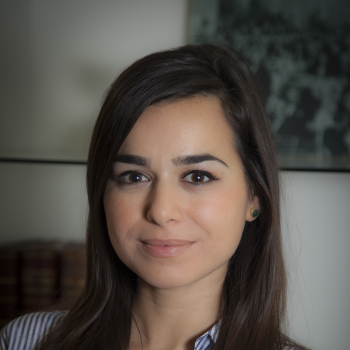How is technology impacting international justice? Challenges and opportunities of digital evidence in international criminal prosecutions.
Speaker(s):
Series:
The dissemination and adoption of technology, particularly smartphones and the internet, enables the collection of information in countries where conflict is ongoing or where atrocities have been committed in the absence of international scrutiny. Call data records, intercepts of mobile phone communications, satellite imagery, social media activity, hard drives and other storage devices present new sources of information for investigators that were not previously available. In addition, technology has facilitated the rise of civil society groups and NGOs that are collecting digital information with the aspiration that this data will be used in future accountability efforts.
While this can be a positive development that may contribute to international and transnational justice processes, the volume of information being generated and preserved presents challenges for the investigation of core international crimes. Information that is collected, preserved and authenticated still needs to be accessible, and data-silos may harm any future accountability efforts. The recent creation of UN investigation mechanisms such as the IIIM (for Syria), UNITAD (for Da’esh/ISIL), and IIMM (for Myanmar) present an opportunity for building clearinghouses of information concerning core international crimes, but for these bodies to be effective, their successful cooperation with civil society will be key. This opens up many questions around the admissibility of the digital information that is being captured to be used as future evidence.
This discussion group is open to anyone interested in international justice, rules of procedure and evidence, and the role of civil society in fact-finding.

aquel Vázquez Llorente is a Senior Legal Advisor at eyeWitness, an organisation set up by the International Bar Association that works at the intersection of technology and international justice. eyeWitness has developed award-winning technology that streamlines the documentation process of core international crimes while meeting the general admissibility criteria in court for photo and video evidence. Raquel helps bridge the gap between human rights defenders on the frontlines and investigators or prosecutors, and provides strategic advice on how technology can be leveraged to facilitate justice. Since the launch of eyeWitness in 2015, their dossiers have contributed to investigations and analyses conducted by United Nations commissions, domestic war crimes units and courts, and transnational institutions.
Raquel has worked in conflict and post-conflict environments in the Middle East, North Africa and South Asia on a range of international criminal law and human rights issues - mostly focusing on state abuse of power and large scale violations. She is a lawyer and a member of the Justice Rapid Response Roster for the deployment of experts in mass atrocities investigations. Raquel holds an MSc in International Strategy and Diplomacy from the London School of Economics and Political Science (LSE) and an Advanced Degree in Law and Business Administration from Universidad Carlos III de Madrid. Her work has been highlighted in Spanish and international media, and she has been recognised in the Forbes 30 under 30 list for her contribution to the field of Law and Policy, and as one of the Choiseul 100 leaders of tomorrow.
Raquel areas of interests are the application of technology to the documentation and investigation of human rights abuses, and the impact of technology in criminal justice. She is also a Visiting Scholar at the Human Rights Center at UC Berkeley School of Law. During her time at the Bonavero Institute she will study how digital archives built by first responders and civil society can contribute to justice for the most heinous crimes, and how data sharing with accountability mechanisms can be strengthened.


 Add to calendar
Add to calendar


